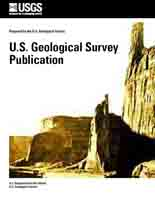Ground water in Triassic-age sedimentary fractured-rock aquifers in the area of Gettysburg, Pa., is used as drinking water and for industrial and commercial supply. In 1983, ground water at the Gettysburg Elevator Plant was found by the Pennsylvania Department of Environmental Resources to be contaminated with trichloroethene, 1,1,1-trichloroethane, and other synthetic organic compounds. As part of the U.S. Environmental Protection Agency?s Comprehensive Environmental Response, Compensation, and Liability Act, 1980 process, a Remedial Investigation was completed in July 1991, a method of site remediation was issued in the Record of Decision dated June 1992, and a Final Design Report was completed in May 1997. In cooperation with the U.S. Environmental Protection Agency in the hydrogeologic assessment of the site remediation, the U.S. Geological Survey began a study in 1997 to determine the effects of the onsite and offsite extraction wells on ground-water flow and contaminant migration from the Gettysburg Elevator Plant. This determination is based on hydrologic and geophysical data collected from 1991 to 1998 and on results of numerical model simulations of the local ground-water flow-system.
The Gettysburg Elevator Site is underlain by red, green, gray, and black shales of the Heidlersburg Member of the Gettysburg Formation. Correlation of natural-gamma logs indicates the sedimentary rock strike about N. 23 degrees E. and dip about 23 degrees NW. Depth to bedrock onsite commonly is about 6 feet but offsite may be as deep as 40 feet.
The ground-water system consists of two zones?a thin, shallow zone composed of soil, clay, and highly weathered bedrock and a thicker, nonweathered or fractured bedrock zone. The shallow zone overlies the bedrock zone and truncates the dipping beds parallel to land surface. Diabase dikes are barriers to ground-water flow in the bedrock zone. The ground-water system is generally confined or semi-confined, even at shallow depths.
Depth to water can range from flowing at land surface to more than 71 feet below land surface. Potentiometric maps based on measured water levels at the Gettysburg Elevator Plant indicate ground water flows from west to east, towards Rock Creek. Multiple-well aquifer tests indicate the system is heterogeneous and flow is primarily in dipping beds that contain discrete secondary openings separated by less permeable beds. Water levels in wells open to the pumped bed, as projected along the dipping stratigraphy, are drawn down more than water levels in wells not open to the pumped bed.
Ground-water flow was simulated for steady-state conditions prior to pumping and long-term average pumping conditions. The three-dimensional numerical flow model (MODFLOW) was calibrated by use of a parameter estimation program (MODFLOWP). Steady-state conditions were assumed for the calibration period of 1996. An effective areal recharge rate of 7 inches was used in model calibration. The calibrated flow model was used to evaluate the effectiveness of the current onsite and offsite extraction well system. The simulation results generally indicate that the extraction system effectively captures much of the ground-water recharge at the Gettysburg Elevator Plant and, hence, contaminated ground-water migrating from the site. Some of the extraction wells pump at low rates and have very small contributing areas. Results indicate some areal recharge onsite will move to offsite extraction wells.


